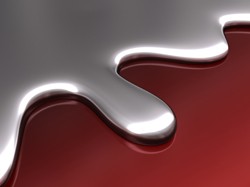A sustainable way to treat manufacturing effluent
The metal and plastic surface processing industry treats the surfaces of metals and plastics to make them stronger and more tolerant of wear. However, the effluent this processing generates is contaminated with oil and grease, organic materials, salts and heavy metals. Each year, European metal finishing and coating operations produce more than 300 000 tonnes of hazardous waste and consume over 100 million cubic metres of water. Stringent EU legislation and the growing costs of water and discharges are encouraging the industry to find better ways to treat its effluent. With EU funding, the ECOWAMA (Eco-efficient management of water in the manufacturing industry) project developed a new way to treat wastewater, combining effluent treatment with the recovery of clean water, valuable metals and energy. The method the researchers devised is a chemical-free, closed-loop process that is cost-effective and sustainable. The innovative system harnesses hydrogen produced during the treatment process to feed fuel cells that generate electricity. This reduces the energy requirements — and carbon dioxide emissions — of the entire process. Pre- and post-treatments remove oils, grease and conductivity. On top of this, a novel process that involves concentrating wastewater separates heavy metals from the effluent and reduces them to a solid, highly purified state. The treatment method developed by ECOWAMA will reduce water consumption, increase efficiency, avoid the use of hazardous chemicals and help recover valuable materials. The success of the initiative will also serve to encourage the acceptance and wider use of electrochemical and physical wastewater treatment in the surface processing industry.
Keywords
Manufacturing, effluent, wastewater, surface processing, heavy metals, ECOWAMA



